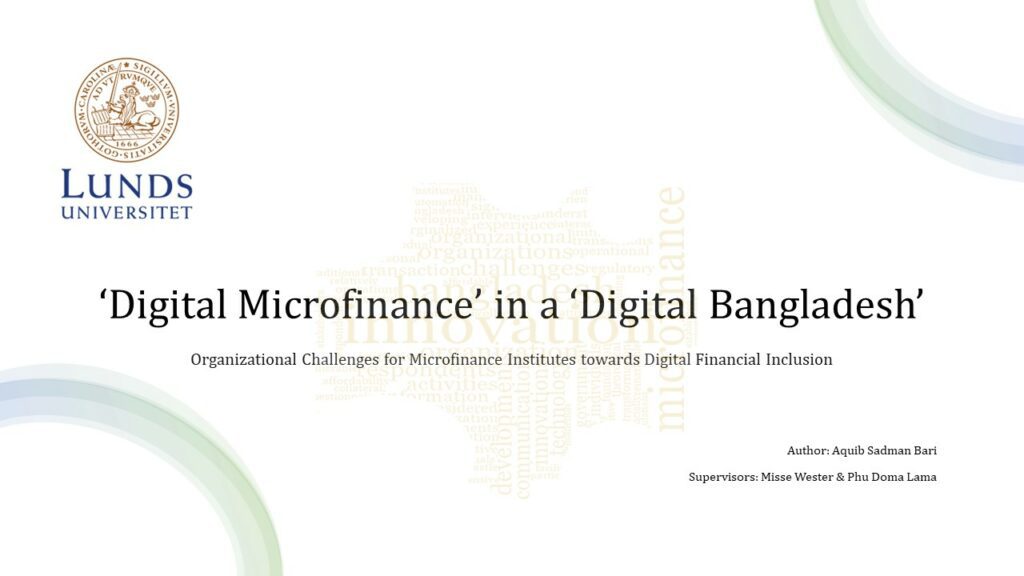(click on the title to see the whole publication)

This thesis aims to contribute to the growing concept of Digital Financial Inclusion by exploring the challenges that Microfinance Institutes (MFIs) experience to provide financial services to the unbanked population in Bangladesh. Though there is an emergence of digital financial services provided by the commercial banks based on the infrastructural development initiative taken by the Bangladeshi Government’s ‘Digital Bangladesh’ agenda, only a few MFIs are investing their resources in digital innovations to strengthen their activities. Therefore, the study’s main objective is to identify the barriers within the organization and among the stakeholders when MFIs want to disseminate the benefits of digital technology. The research process applies a qualitative case study method where 11 MFIs and one Research Personal have shared their observation through answering questionnaires and semi-structured interviews. Roger’s Diffusion of Innovations theory is used to analyze the data derived from both primary and online-based secondary resources to understand the impact of barriers on adopting digitization. The empirical findings reveal that a lack of organizational capacity, stakeholders’ challenges, and regulatory gaps are among the main barriers for the MFIs. These barriers demotivate the MFIs towards advanced digital transformation though they have a greater willingness to contribute to digital financial inclusion.
